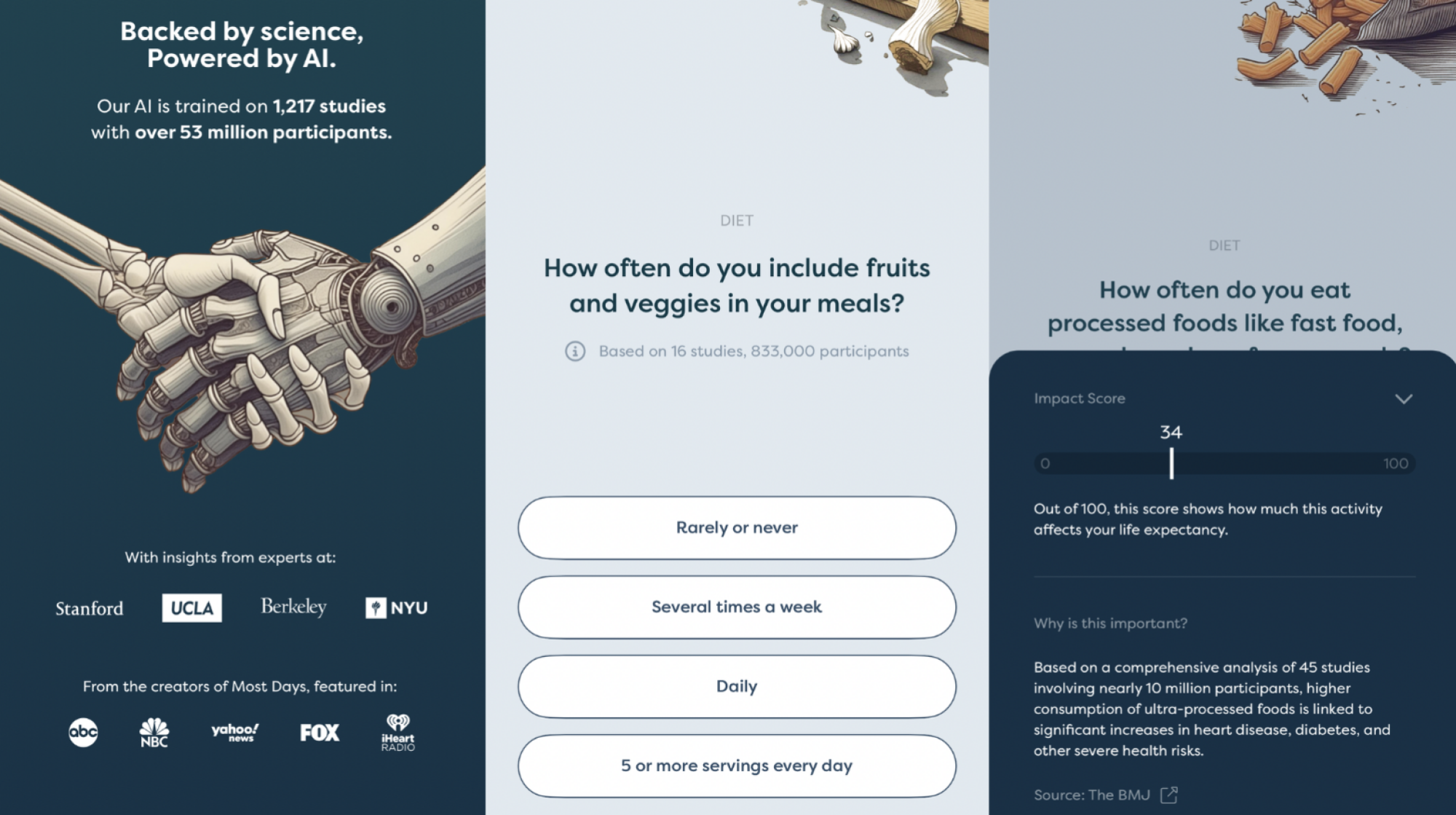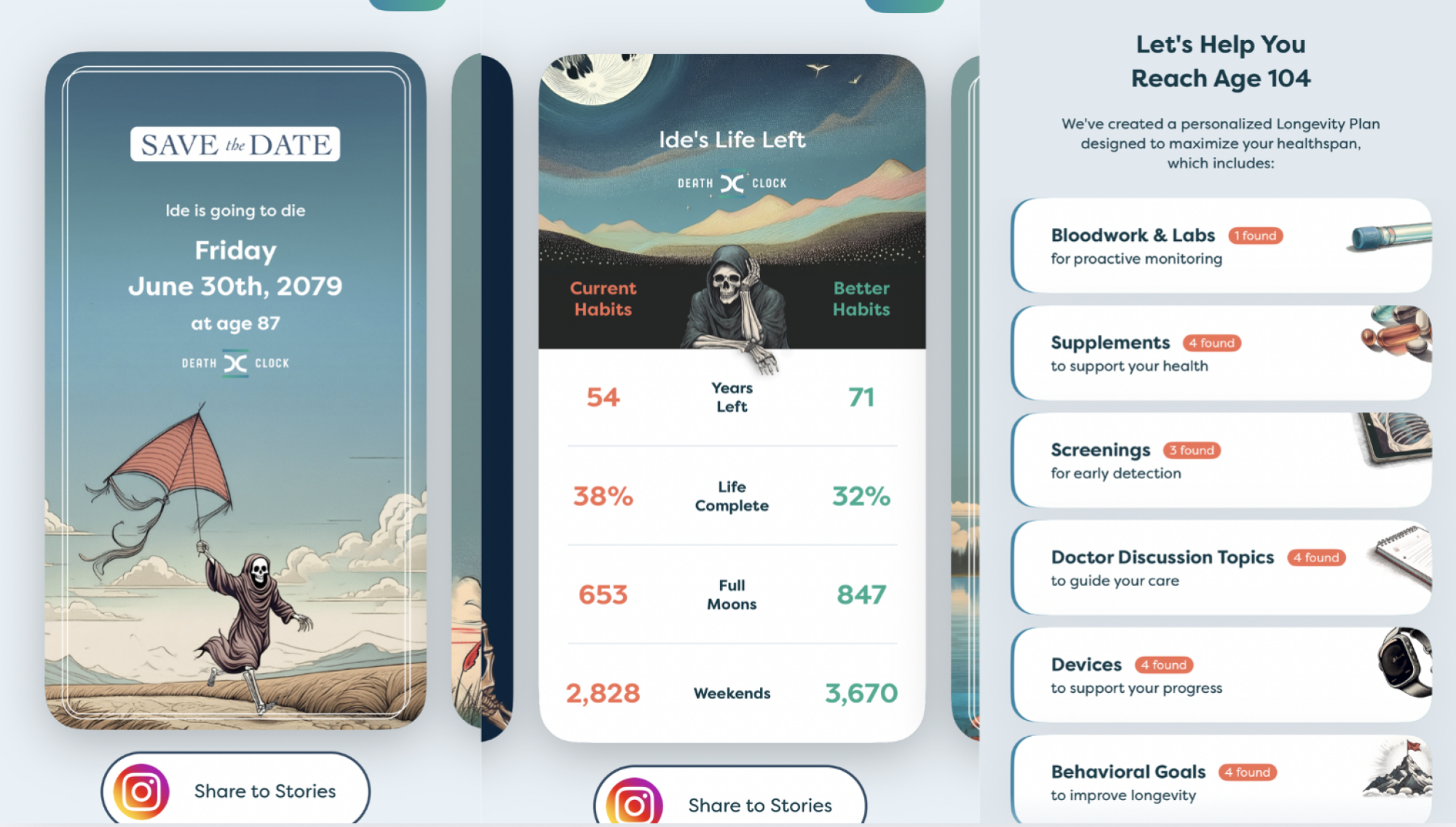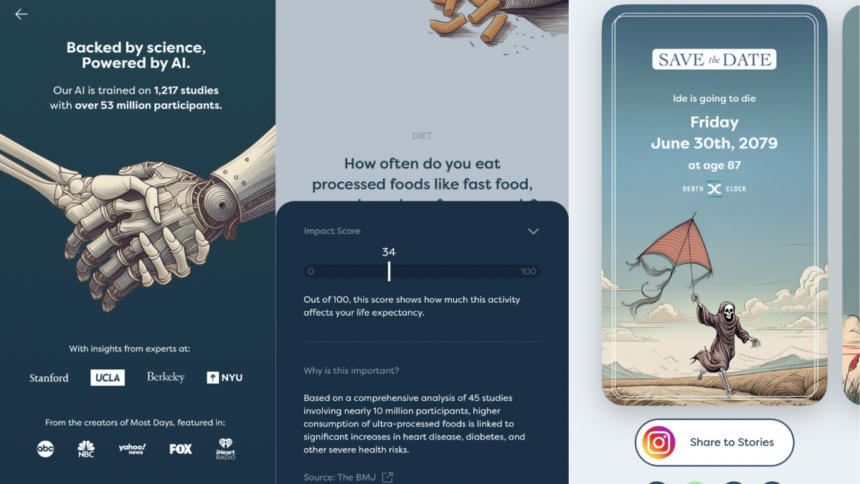Exploring the Death Clock AI App: A Unique Approach to Health Reflection
Whenever an advertisement for an app pops up, there’s a good chance it will end up on my device—this has become quite a consistent occurrence. The recommendations I receive mostly revolve around fashion and beauty, thanks to the well-tuned algorithm recognizing my interests. However, there’s another layer to my personality that the algorithm has picked up on as well: my more reflective side. Just recently, I stumbled upon an intriguing app called Death Clock AI, which claims to predict my date of demise based on my personal data and scientific research. Who could resist such an intriguing offer?
While I certainly don’t think I’ll meet my end on June 30, 2079, as the app suggests, I also understand that an app is not a holistic solution for navigating life’s health journey. It did provide some recommendations for enhancing my well-being, but those insights should not replace conversations with a healthcare professional. Yet, despite its limitations, the app prompted some valuable reflections on my lifestyle, which makes it, at the very least, an interesting tool.
Understanding Death Clock AI
Upon launching the app—available for iOS and Android—users are welcomed with a message: “live longer, better,” followed by an invitation to “See my death date.” However, before revealing this date, users must complete over 30 questions concerning their lifestyle and health habits. The app processes this data and reveals the ultimate conclusion.
The app promotes itself as being “backed by science, powered by AI,” relying on findings from 1,217 studies involving a total of 53 million individuals. Although it does gather basic information such as age and demographic background, it doesn’t factor in individual family or health histories, nor does it address various workplace risks or social determinants affecting health.

Many of the questions—such as “How frequently do you consume fruits and vegetables?”—allow those curious to delve into the research supporting them. By clicking on the associated research button, a pop-up explains, “Research from 16 studies with over 833,000 individuals indicates that each additional daily serving of fruits and vegetables decreases the risk of death from all causes by 5%, with optimal benefits at five servings a day.”
Some questions might present challenges in answering accurately. For example, determining how often you engage in cardiovascular exercise each week or how much time you spend sitting daily is easier than assessing your stress levels or knowing specific health metrics like blood pressure or LDL cholesterol. Personally, I found myself answering “I don’t know” for several questions, which could impact the overall results.
Once the app calculates your “death date,” it will also propose a further-off date as an aspirational target. Users can utilize the app free of charge for three days, after which an annual fee of $40 will apply. Subscribers can upload health-related documents and sync their phone’s health data, observing sleep patterns and daily step counts. The predictive death date may vary based on this input, and the subscription keeps access to personalized longevity plans created by Death Clock.
While the brief trial period limited the depth of exploration regarding the app’s long-term benefits, it certainly sparked considerable reflection.
Rethinking Health Through Death Clock AI
The creators of the app have indeed leveraged credible research, yet the app’s mortality forecasts should not be taken too seriously. Rather, it serves as a prompt for reevaluating one’s health—similar to how data from fitness trackers and smart scales can be interpreted. Acknowledging that such data may be imprecise, merely considering how frequently I incorporate fresh produce into my diet or how often I change my posture during the day felt like a constructive realization. The notion of receiving a “death date” adds an element of entertainment to the experience.

Death Clock AI generated a “longevity plan” for me, featuring suggested blood tests, screenings, supplements, and topics to discuss with my healthcare provider. For those eager to explore their health journey but uncertain about how to initiate, this guidance can be beneficial. For each recommendation, the app outlines necessary steps and even indicates whether they’re likely covered by insurance.
The final prompt from the app is a reminder that it “does not provide medical advice” and encourages consulting a qualified medical professional for health-related concerns. This statement holds true.
Privacy Concerns to Consider
If there are concerns about entering sensitive health information into an app, rest assured that Death Clock AI’s privacy policy asserts the developers’ commitment to safeguarding personal data from unauthorized access. However, they may also “create aggregated, de-identified, or anonymized data from the Personal Data” collected for analytical purposes or service refinement. While this practice is fairly common among applications, it’s particularly relevant when sharing private health details.
For those who may be conservative about data sharing, it’s advisable to input only what one is comfortable revealing. The paid option allows users to enter detailed health data such as recent blood work, but this is not obligatory. Sticking to the free version—which doesn’t require account creation—affords the chance to skip any questions deemed too personal.
Ultimately, while Death Clock AI offers intriguing insights and prompts for healthier living, it isn’t strictly necessary for this reflection. If providing personal health metrics into a quirky app feels uncomfortable, it may be best to explore healthier habits independently. However, for those who can set aside privacy worries in pursuit of deeper health insights, this app offers a fun, albeit slightly whimsical, starting point.












